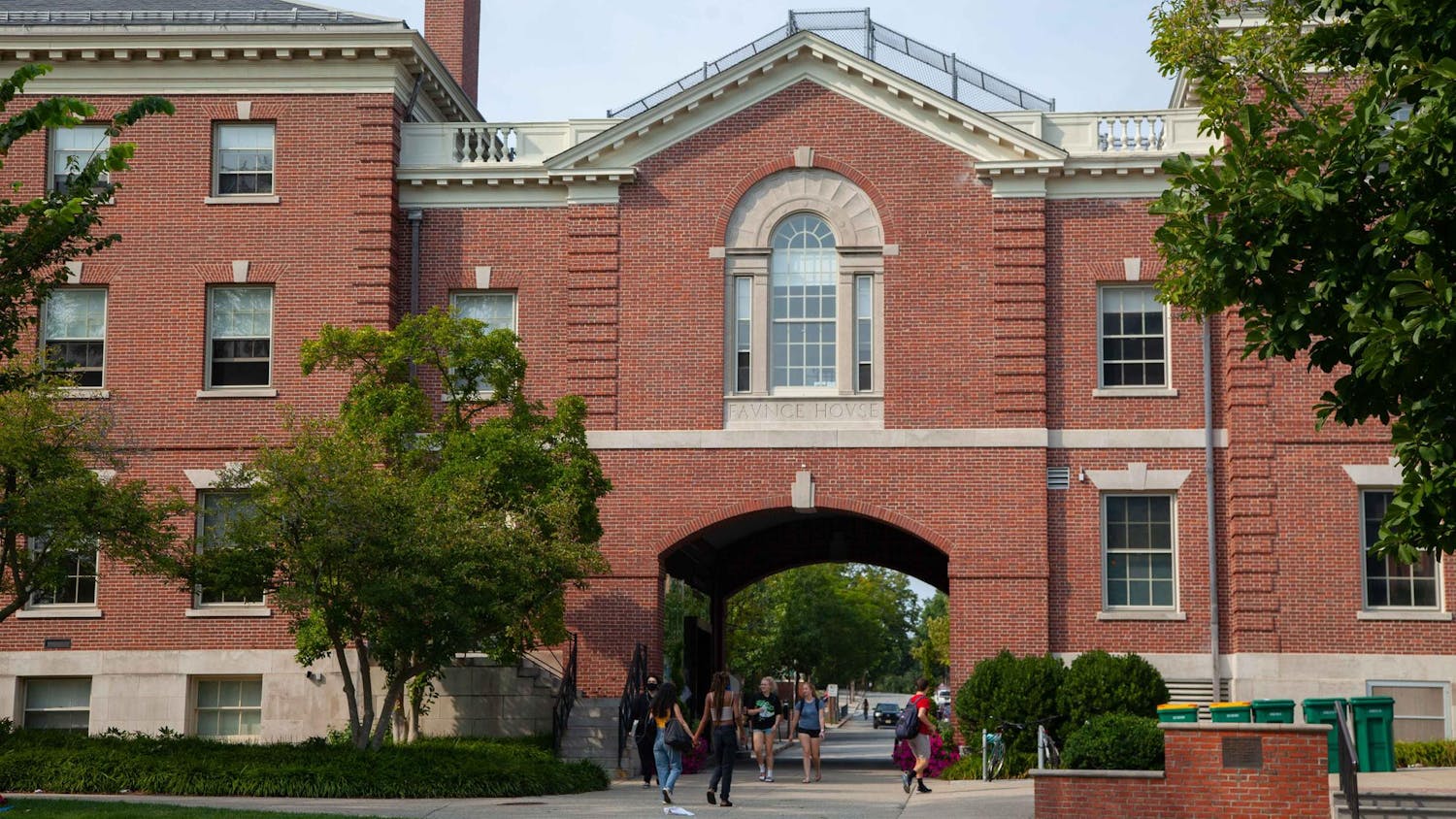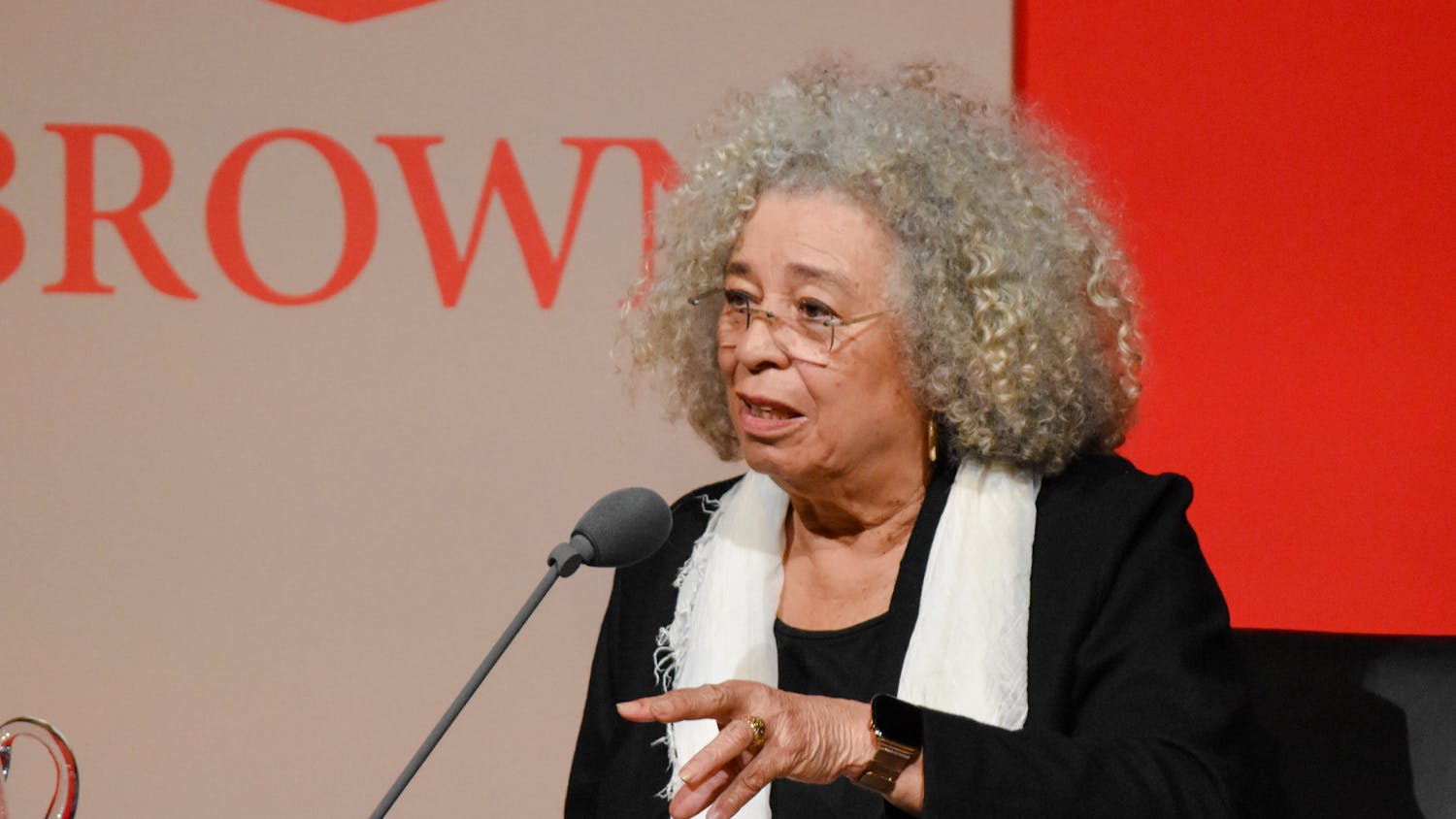"At Classical, they used to call me the eternal freshman — and in high school that wasn't entirely a compliment," writer Jonathan Weiner told a Salomon 101 crowd of community members and a smattering of students Wednesday night.
Author of "The Beak of the Finch: A Story of Evolution in Our Time" and a professor at the Columbia School of Journalism, Weiner described how his undying curiosity, fascination with biology and love of writing propelled him to reconcile science and the arts. In his book, Weiner discusses Darwin's theory of evolution and the groundbreaking work of Peter and Rosemary Grant.
"The Beak of the Finch" was selected for the 2009 orientation program First Readings. This is the third year of the program, in which freshmen and transfer students receive a summer reading assignment before they arrive on campus. Students used the book as a springboard to write introductory letters to their academic advisors.
According to Dean of the College Katherine Bergeron, this was the program's "most successful first reading yet," adding "even the non-scientists found themselves captivated."
The spark of Weiner's passion for scientific writing came during his senior year at Classical High School, which is in Providence. A visit to the library led to Weiner's discovery of an article in Scientific American, "The Social Amoeba," by John Tyler Bonner, professor of ecology and evolutionary biology at Princeton University.
Weiner was captivated by the article, in which Bonner elegantly tells a story of how amoebas come together to form "fabulous towers" in times of crises. Weiner decided then that he had to write about biology.
Weiner eventually attended Harvard University where he chose to study writing over biology.
"Since now I was a poet, I now had to hate science," Weiner joked. But despite four years of poetry courses, he realized science writing was his niche. He launched his science writing career with the essay "Marching Along with the Social Amoeba," which was published in Harvard Magazine. Weiner's first book, "Planet Earth," was a companion book to the seven-part PBS television series.
Struggling with writer's block, Weiner turned to Bonner, who gave Weiner the idea of writing about evolution and the work of the Grants. They were involved in a classic evolutionary study of measuring the beaks of the Galapagos finches and watching natural selection in action. The study was renowned in biology but largely unknown outside of the field.
"I lit up. This is my story!" Weiner said. "It possessed me from the minute I heard it."
Still a young writer, Weiner spent two years "wooing the Grants," who were initially hesitant about the book. The Grants documented each step of Darwin's argument about the Galapagos finches and the swing of a "pendulum" in favor of certain beak sizes based on pressures of natural and sexual selection.
The Grants eventually agreed to work with Weiner, who said he had fallen in love with the finches and the evolutionary process as much as the Grants and their students had. Weiner said watching "evolution in action" is especially exciting because Darwin was so convinced that the process would be impossible to see "by mortal humans."
Maya Sikand '13, who attended the lecture, said she appreciated how Weiner took evolution out of the small example of the finches and applied it in a wider context.
William Donovan '12 asked Weiner whether he would do anything differently if he had the chance to return to Harvard.
"I spent four years trying to crack the kind of seed I wasn't equipped to crack," Weiner said. "It was only when I realized that I actually loved the science and the writing and I could put the two together — it was then when I found my way as a writer."




